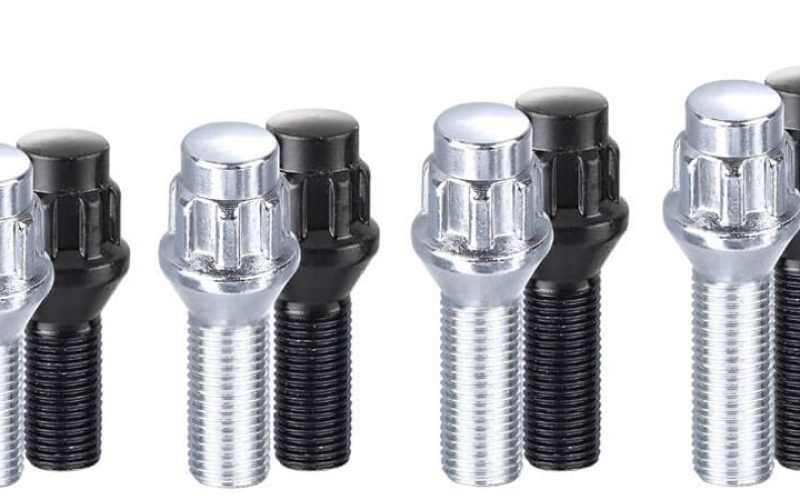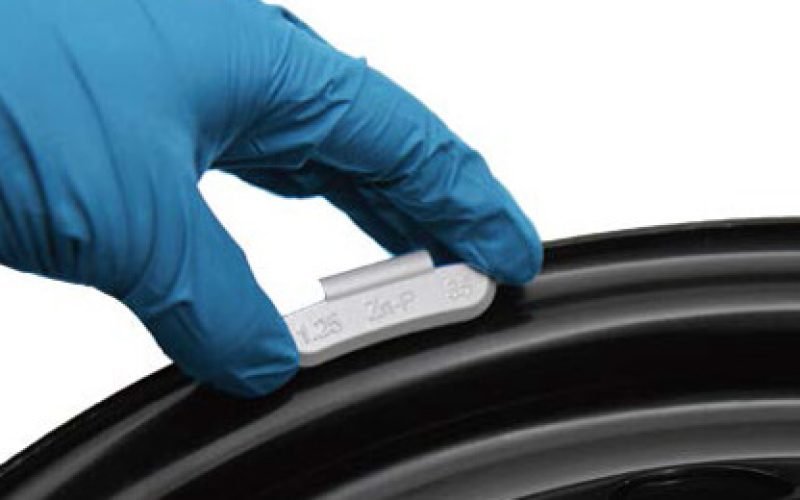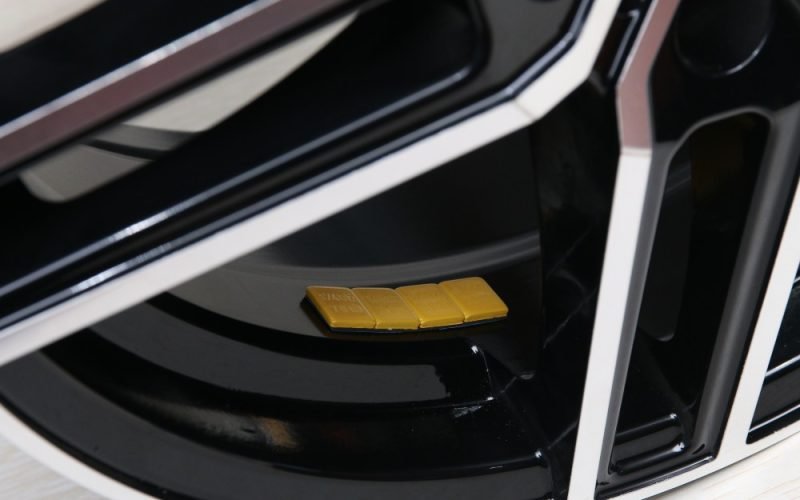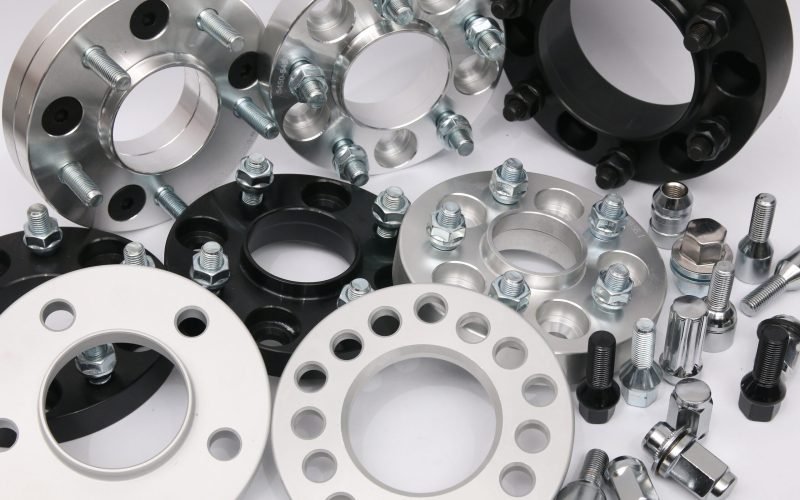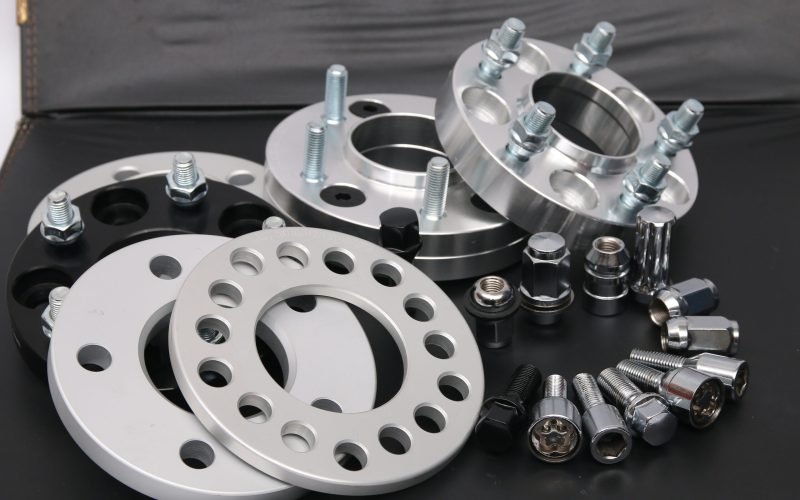

admin1
June 24, 2025
How Wheel Tire Weight Changes the Way Your Car Handles
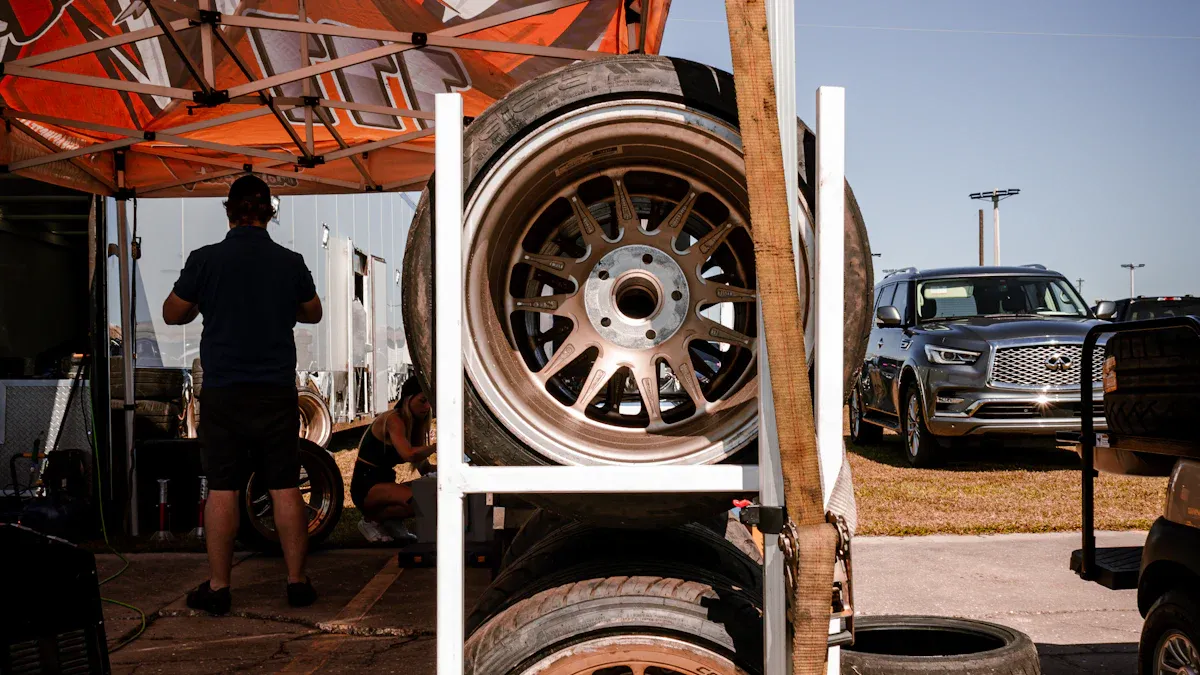
You may not realize how much wheel tire weight changes your driving experience. Lightweight wheels help your car accelerate faster and feel more agile. For example, switching from heavier 20″ wheels to lighter 18″ wheels can make your car go from 0-60 mph about 0.12 seconds quicker and extend your driving range by 37 miles.
Lighter wheels also reduce vertical acceleration by over 10%, which means a smoother ride and better comfort.
| Metric | 20″ Wheels (Heavier) | 18″ Wheels (Lighter) | Improvement/Effect |
|---|---|---|---|
| Combined Wheel & Tire Weight | 56 lbs | 45.8 lbs | 10.2 lbs lighter |
| Efficiency (Wh/mi) | 254 | 227 | 27 Wh/mi better |
Choosing the right wheel tire weight improves vehicle performance and safety. You gain better control, more efficiency, and longer-lasting suspension. The effect of wheel weight on performance becomes clear when you feel sharper handling and save on fuel.
Wheel Tire Weight and Acceleration & Braking

Acceleration Response
When you reduce wheel tire weight, your car responds faster when you press the gas pedal. Lighter wheels need less energy to spin, so you get quicker acceleration. Even a small change in weight can make a difference. For example, adding just 1 kg to each wheel can slow your 0-60 mph time by up to 0.2 seconds. This happens because heavier wheels increase the moment of inertia, which means your engine must work harder to get moving.
Researchers use special sensors inside tires to measure how quickly a car accelerates. These sensors show that lighter wheels help your car pick up speed more easily, especially in lower gears and at higher RPMs. You may not always notice a huge change in acceleration times, but you will feel the car respond more quickly when you drive.
| Parameter | Change in Wheel Weight | Effect on Acceleration |
|---|---|---|
| Moment of Inertia Increase | +1 kg wheel mass | 0-60 mph time increases by 0.1–0.2 seconds |
| Switching from 20 kg steel wheels to 13.5 kg forged aluminum wheels | -6.5 kg per wheel | Up to 0.2 seconds improvement in 0-100 km/h acceleration |
Braking Distance and Control
Wheel tire weight also affects how quickly you can stop your car. Heavier wheels and tires require more energy to slow down, which leads to longer braking distances. Tests show that increasing wheel weight from 13 kg to 19 kg can make your car take almost 5 meters longer to stop from 100 km/h. This extra distance can be important in an emergency.
When you use lighter wheels, you get more efficient braking. Your brakes do not have to work as hard, so they stay cooler and last longer. You also get better control because the suspension can react faster to bumps and changes in the road.
Tip: If you want better vehicle performance and safety, pay attention to wheel tire weight when choosing new wheels.
Real-World Performance Examples
You can see the effects of wheel tire weight in real-world tests. For example, a Honda Civic with heavier 18-inch wheels took 0.5 seconds longer to reach 60 mph compared to its stock 15-inch wheels. In another test, switching from 25 kg 20-inch wheels to 18 kg 19-inch wheels improved acceleration and reduced braking distances.
- Lighter wheels give you a smoother ride and sharper handling.
- Heavier wheels can make your car feel slower and harder to stop.
- Reducing wheel tire weight by 7 kg per wheel can improve both acceleration and braking.
Choosing the right wheel tire weight helps you get the best performance from your car. You will notice better acceleration, shorter stopping distances, and a more responsive driving experience.
Wheel Tire Weight and Handling & Ride Comfort

Steering Feel and Agility
Wheel tire weight changes how your car feels when you turn the steering wheel. Lighter wheels make your steering feel quicker and more direct. You can notice this when you drive through city streets or twisty roads. Your car reacts faster to your input, which gives you more control. Heavier wheels can make the steering feel slow or heavy. This can make it harder to make quick moves in traffic or avoid obstacles. Many drivers say that lighter wheels give them more confidence and help them enjoy a more responsive handling experience.
Suspension Response
Your car’s suspension works to keep your ride smooth and stable. When you use lighter wheels, the suspension can react faster to bumps and dips in the road. This means you feel fewer jolts and enjoy a more comfortable ride. Heavy wheel tire weight puts extra stress on the suspension. Over time, this can wear out parts faster and make your ride feel rougher. Tests show that cars with lighter wheels have less vibration and better comfort, especially on rough roads. You also protect your suspension and improve overall vehicle performance by choosing the right wheel tire weight.
Cornering Stability
Cornering is when your car turns around a curve or bends in the road. Wheel tire weight plays a big role in how stable your car feels during these moves. Lighter wheels help your car stay balanced and grip the road better. This improves your performance in sharp turns and helps prevent sliding. Heavier wheels can make your car lean more in corners, which can reduce your confidence. If you want to boost your vehicle performance and enjoy safer, more stable turns, pay attention to wheel tire weight.
Tip: For the best mix of comfort, safety, and performance, always match your wheel tire weight to your driving needs.
Wheel Tire Weight and Fuel Economy
Impact on Gas Mileage
You might wonder how wheel tire weight changes your car’s fuel economy. Many drivers expect that lighter wheels will always give better gas mileage. In reality, the effect is not always dramatic. For most trucks, like the Toyota Tacoma, small changes in wheel tire weight—about 4 to 15 pounds per wheel—do not make a big difference in fuel economy. One Tacoma owner drove nearly 200,000 miles and saw no real change in fuel economy when switching between tires weighing 38 pounds and 53 pounds each.
Other factors, such as tire size and tread pattern, often play a bigger role. Larger tires and aggressive treads can lower your fuel economy by about 5%. This drop comes mostly from the extra rolling resistance, not just the weight. If you drive a sports car, you may notice a bigger impact. For example, a Mustang owner felt a clear improvement in performance after reducing wheel tire weight by 8 to 10 pounds per corner. However, this effect is less obvious in heavier vehicles with more torque.
Note: Tire weight alone does not always predict changes in fuel economy. Pay attention to tread design and tire size as well.
City vs. Highway Efficiency
Wheel tire weight affects city and highway fuel economy in different ways. In city driving, you stop and start more often. Heavier wheels make your engine work harder each time you accelerate, which can lower your fuel economy. A real-world test showed that switching from lighter tires (about 45.5 pounds) to heavier ones (about 55 pounds) caused a 2 MPG drop in city driving. On the highway, the difference almost disappeared. Once you reach cruising speed, wheel tire weight matters less.
MotorTrend ran a controlled test using two tires of the same size but with different weights and tread patterns. The results showed a 2.2 MPG (15%) difference in fuel economy. Most of this change came from the tread design, not just the weight. Tire width, stiffness, and rolling resistance also play important roles. You should consider all these factors when choosing new wheels and tires.
- Lighter wheels help most in city driving.
- Tread pattern and tire size can change your fuel economy more than weight alone.
- Always check how your choices affect both city and highway efficiency.
Wheel Tire Weight and Vehicle Safety
Grip and Traction
You need strong traction to keep your car safe on the road. Traction means how well your tires grip the surface, especially when you speed up, slow down, or turn. Wheel tire weight changes how much traction you get. Lighter wheels help your tires stay in better contact with the road. This gives you more control, especially in wet or slippery conditions. Heavier wheels can sometimes press the tire down more, but too much weight can make the tire lose grip when you hit a bump or a pothole.
Tests show that cars with lighter wheels often stop faster and hold the road better in sharp turns. For example, a car with lighter wheels can shorten its stopping distance by up to 5%. You will notice better traction when you drive on rain-soaked streets or gravel roads. If you want the best traction, always check your wheel tire weight and make sure your tires match your driving needs.
Tip: Good traction keeps you safe during sudden stops or quick turns. Always pay attention to your wheel tire weight and tire condition.
Stability in Emergency Situations
Stability matters most when you face an emergency. You might need to swerve to avoid an obstacle or stop quickly. Wheel tire weight affects how your car reacts in these moments. Lighter wheels let your suspension respond faster. This helps your car stay balanced and steady when you make sudden moves. You will feel more in control, and your car will not lean as much.
In crash-avoidance tests, cars with lighter wheels kept better traction and stayed on course during sharp maneuvers. Heavy wheels can make your car feel sluggish and slow to react. If you want to boost your safety, choose a wheel tire weight that matches your car and driving style. You will notice the difference when you need it most.
Choosing the Right Wheel Tire Weight for Vehicle Performance
Everyday Driving Needs
When you drive every day, you want your car to feel safe, comfortable, and easy to handle. The right wheel tire weight makes a big difference in how your car performs on city streets and highways. If you choose wheels and tires that are too heavy, you may notice your car takes longer to stop. Tests show that heavier wheels can increase braking distances by up to 5 meters from 100 km/h. This extra distance can matter in an emergency.
You may also see your fuel economy drop by 1 to 3 mpg with heavier wheels, especially in stop-and-go traffic. Heavier wheels add more unsprung mass, which makes your ride feel rougher and can reduce how well your tires stay in contact with the road. Studies confirm that heavier wheels slow your car’s acceleration by 0.1 to 0.2 seconds for every kilogram added per wheel. Steering can feel less responsive, and your brakes may wear out faster.
Here are some key points experts have found about wheel tire weight for daily driving:
- Heavier wheels increase braking distance and slow acceleration.
- Fuel economy drops, especially in city driving.
- Suspension performance suffers, causing a rougher ride.
- Steering feels less sharp and responsive.
- Brake wear increases, leading to more frequent maintenance.
- Lighter wheels improve throttle response, handling, and comfort.
- Matching tire width and type to your wheels helps with aerodynamics and ride quality.
Tip: For daily driving, choose a wheel tire weight that balances comfort, safety, and efficiency. Lighter wheels and tires often give you a smoother ride and better control.
Performance Upgrades
If you want to upgrade your car for better performance, you need to think carefully about wheel tire weight. Many drivers look for ways to make their cars faster and more agile. Changing the weight of your wheels and tires can help you reach these goals.
Studies show that shifting weight toward the rear axle improves acceleration, braking, and cornering. When the rear axle carries more of the car’s weight, acceleration can increase by up to 48%, and the distance needed to reach top speed can drop by half. Braking distance can improve by about 34% with more weight on the rear axle. Cornering also gets better, with yaw rate improving by 30%. These changes help your car stay stable and quick during sharp turns.
You can also use control systems like yaw rate and wheel slip controllers to boost stability and handling. These systems work best when you have the right wheel tire weight for your car’s setup. The relationship between vertical load and tire force is clear: the right weight distribution gives you more grip and better performance.
- Shifting weight rearward increases acceleration and reduces braking distance.
- More weight on the rear axle improves cornering and stability.
- Control systems work better with the right wheel tire weight.
- The right setup gives you more grip and faster response.
Note: If you want to upgrade your car’s performance, always consider how wheel tire weight affects balance and handling. The right choice can help you get the most from your vehicle.
Special Uses (Off-Road, Track, Towing)
You may need a different wheel tire weight if you drive off-road, race on a track, or tow heavy loads. Each use has its own needs.
For off-road driving, you want wheels and tires that are strong but not too heavy. Lighter wheels help your suspension react quickly to bumps and rocks. This keeps your tires in contact with the ground and improves traction. Heavy wheels can make your ride rough and put more stress on your suspension.
On the track, every pound matters. Racers often choose the lightest wheels possible to get faster acceleration and sharper handling. Lighter wheels reduce rotational inertia, so your car responds quickly to steering and throttle changes. This can help you shave seconds off your lap times.
When towing, you need wheels and tires that can handle extra weight. Sometimes, a slightly heavier setup gives you more stability and strength. You should still avoid wheels that are too heavy, as they can slow your acceleration and make braking harder.
| Special Use | Recommended Wheel Tire Weight | Key Benefit |
|---|---|---|
| Off-Road | Light but strong | Better suspension response |
| Track | As light as possible | Faster acceleration, handling |
| Towing | Moderate, strong | Stability and load capacity |
Callout: Always match your wheel tire weight to your driving needs. The right choice improves safety, comfort, and performance, no matter where you drive.
Practical Tips from Fortune’s Expertise
You want your car to feel smooth, safe, and efficient. Fortune’s decades of experience in wheel and tire accessories can help you make smart choices for your vehicle. Here are some practical tips you can use right away:
1. Choose the Right Wheel Weights for Your Wheels
Not all wheel weights work the same way. You need to match the type of weight to your wheels for the best results. Use adhesive wheel weights for alloy and modern wheels. These weights stick firmly and have a low profile, so they do not damage the wheel finish. Clip-on weights work well for steel wheels. Always check your wheel type before choosing.
2. Pick Eco-Friendly and Durable Materials
Many drivers now care about the environment and want products that last. Fortune recommends using wheel weights made from steel, zinc, or composite materials. These options have very low toxicity and high corrosion resistance. They also meet strict environmental rules and help keep your wheels looking good for longer.
| Feature | Adhesive Wheel Weights | Lead Wheel Weights | Steel/Zinc Weights | Composite Weights |
|---|---|---|---|---|
| Environmental Impact | Very low, eco-friendly | High toxicity | Low toxicity | Very low toxicity |
| Installation Ease | High, easy to apply | Moderate | Moderate | High |
| Corrosion Resistance | High resistance | Low resistance | High resistance | High resistance |
| Compatibility | Wide range | Moderate | Wide range | Wide range |
| Weight Precision | High precision | High precision | High precision | High precision |
| Aesthetic Impact | Minimal | Moderate | Minimal | Minimal |
Tip: Eco-friendly wheel weights help protect the environment and keep your wheels in top shape.
3. Balance Your Tires Regularly
Balanced tires make your ride smoother and safer. When you balance your tires, you reduce vibrations and noise. This helps you feel less tired on long drives. Studies show that proper tire balancing can improve fuel efficiency by up to 2.2%. You also extend the life of your tires and save money on repairs.
- Balanced tires reduce uneven wear.
- You get better handling and more stability.
- Your car feels more comfortable, even on rough roads.
4. Place Wheel Weights Correctly
Correct placement of wheel weights is important. When you put weights in the right spots, you cut down on vibrations and improve your car’s handling. You also make your car safer during quick turns or sudden stops. Fortune’s engineers use advanced tools to make sure every weight is placed with high precision.
5. Make Tire Balancing Part of Your Routine
You should check your tire balance every time you rotate your tires or change them. Regular balancing keeps your car running smoothly and helps you avoid costly repairs. It also ensures your vehicle keeps its best performance on the road.
6. Watch for Innovations
Fortune stays ahead by using new technology in wheel weights. Modern adhesive weights have stronger bonding and better resistance to weather. These innovations help your car stay balanced longer and support green automotive trends.
Note: Choosing the right wheel weights and keeping your tires balanced gives you a safer, more comfortable, and more efficient drive.
You can trust Fortune’s expertise to guide you. With the right choices, you protect your wheels, improve your car’s performance, and help the environment.
You play a big role in how your car performs by choosing the right wheels and tires. Lightweight wheels help you boost acceleration, improve handling, and make your ride smoother. Keeping your wheels balanced reduces vibrations, extends tire life, and helps your fuel economy. Many new rules and technologies, like AI balancing systems and advanced materials, make cars safer and more efficient.
- Balanced wheels support better fuel economy and safety.
- Electric and hybrid cars need precise balancing for top fuel economy.
- New adhesive weights and smart systems help protect your wheels and keep your fuel economy high.
Remember, your choices affect comfort, safety, and fuel economy every time you drive.
FAQ
How does wheel tire weight affect my car’s acceleration?
You feel faster acceleration with lighter wheels. Your engine uses less energy to spin lighter wheels. For example, reducing each wheel by 1 kg can improve your 0-60 mph time by up to 0.2 seconds. You notice a quicker response when you press the gas pedal.
Will lighter wheels help my fuel economy?
Yes, lighter wheels can help you save fuel, especially in city driving. You use less energy to start and stop your car. Tests show a 2 MPG improvement in city conditions when switching to lighter wheels. Tire tread and size also play a big role in fuel savings.
Do heavier wheels make my car safer?
Heavier wheels can add stability on highways or when towing. You may feel more planted at high speeds. However, lighter wheels improve your car’s ability to stop quickly and handle sudden turns. Always match wheel weight to your driving needs for the best safety.
How often should I balance my wheels and tires?
You should balance your wheels every time you change or rotate your tires. Regular balancing reduces vibrations, improves comfort, and extends tire life. Experts recommend checking balance at least once a year or every 6,000 miles.
What materials are best for wheel weights?
You get the best results with steel, zinc, or composite wheel weights. These materials resist corrosion and meet environmental standards.
| Material | Corrosion Resistance | Eco-Friendly |
|———–|———————|————–|
| Steel | High | Yes |
| Zinc | High | Yes |
| Composite | High | Yes |
